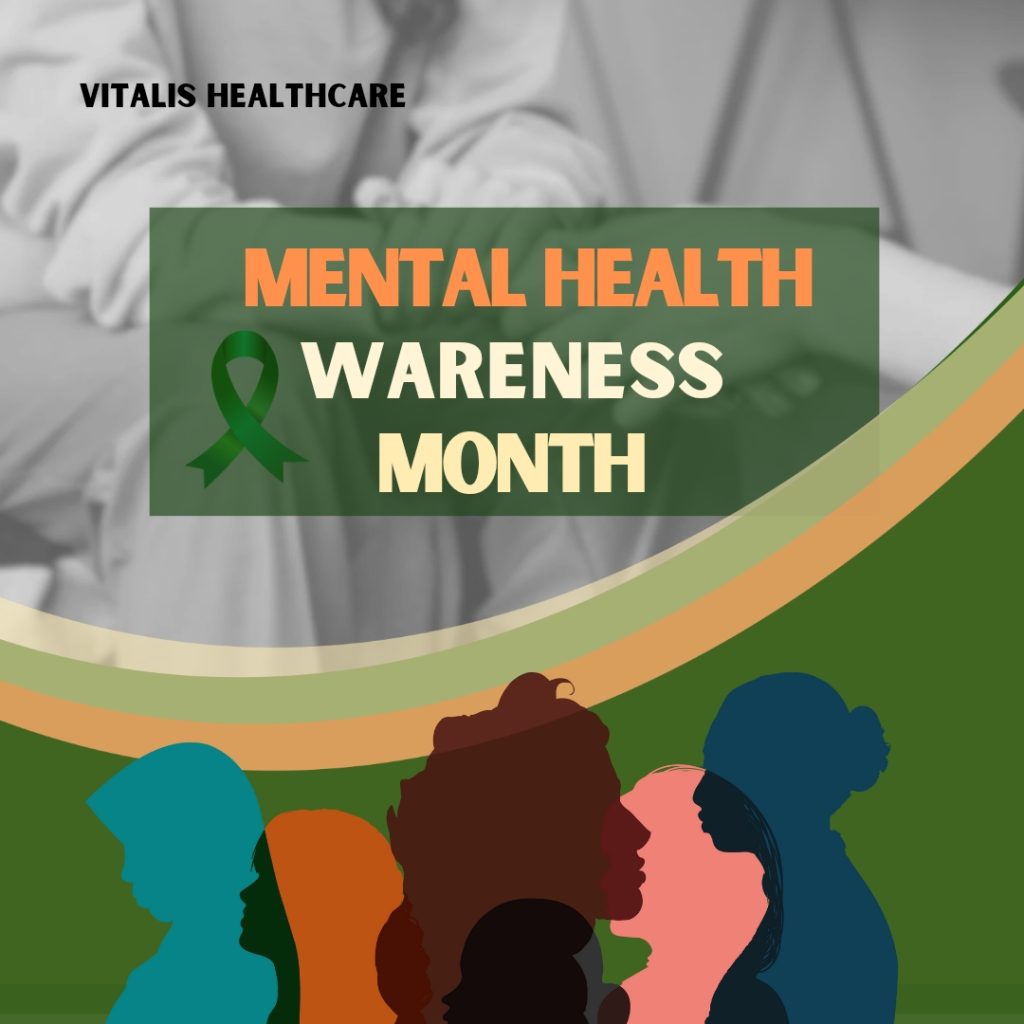As we step into mental health awareness month, let’s discuss the mental health concerns that are associated with aging. As you age, you may face certain life changes that impact your mental health such as losing a loved one or coping with a serious illness. An inability to adjust to the changes of aging can create a sense of deep grief, loneliness or social isolation, which can lead to mental illness such as depression and anxiety when they persist.
Treatment options are available to help you manage your mental health at every stage of your life and improve the overall quality of your life. The first step however, is recognizing the signs and visiting a qualified healthcare provider.
In this article, we’ll explore some of the tell tale signs of mental illness:
- Anxiety or worry: It is normal to get stressed and worried from time to time. Anxiety becomes a sign of mental illness when the worry becomes constant and interferes with your daily activities. Some physical symptoms of anxiety are trembling, shortness of breath, heart palpitations, chest tightness, feeling dizzy and even diarrhoea.
- Sleep problems: changes to the sleep pattern of an individual could be a symptom of mental illness. Sleeping too much or insomnia, or changes in sleeping pattern such as sleeping all day and staying up all night for no particular reason.
- Being quiet or withdrawn from life: Being withdrawn from life, especially if it’s a drastic change from your personality can be a sign of mental illness. Additionally, feeling a lack of interest in activities you previously enjoyed may also be a symptom of mental illness.
- Appetite and weight changes: A dramatic change in the appetite and weight of an individual may be a symptom of mental illness. Under eating and over eating, consequently leading to weight loss or gain could be a sign that an individual has a mental illness.
- Emotional outbursts: Drastic changes in the mood of an individual can be a symptom of mental illness, especially when the mood in question misaligns with your original personality. Mood changes such as extreme anger or distress may be a sign of mental illness.
- High risk behavior: Sudden engagement in high risk behaviors such as substance abuse, reckless driving or crime can also be a symptom of mental illness or disorder.
Mental illness is treatable, through different methods. If you notice at least one of the symptoms listed above, the first step to treatment is to see a doctor or health professional for proper diagnosis and treatment options.
MENTAL HEALTH AMERICA- If you or someone you know is struggling or in crisis, help is available. Call 1-800-662-HELP (4357 )or You can also reach the Crisis Text Line by texting MHA to 741741.
With love,
Vitalis Home Healthcare.
Phone Number:
240.716.6874
Email: info@vitalishealthcare.com
Location:
We provide our services in every county in the State of Maryland, United States of America.
Office Address: 8757 Georgia Avenue Suite 440 Silver Spring, MD 20910.
Do you or someone you know need home care?


